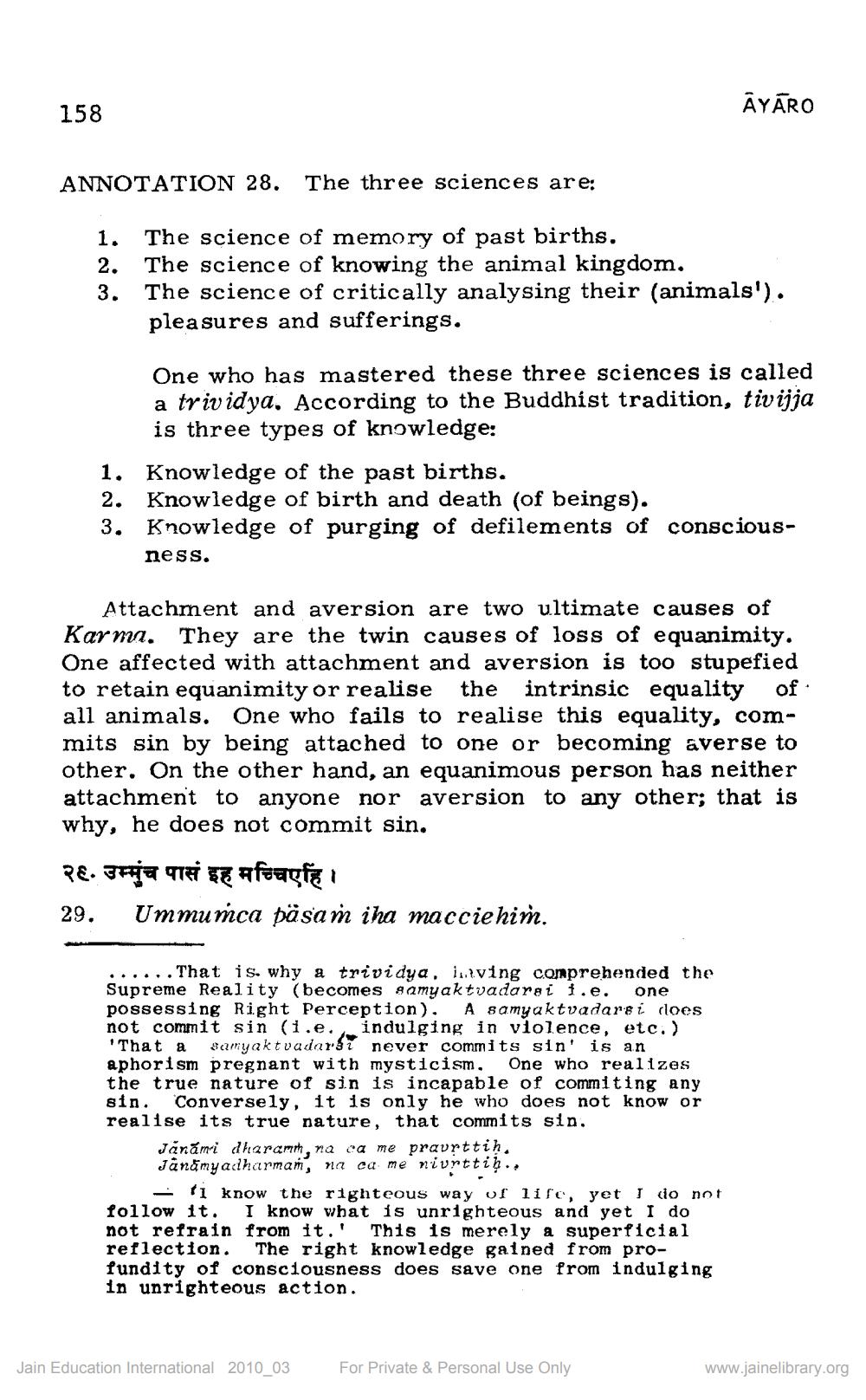________________
158
ANNOTATION 28. The three sciences are:
1. The science of memory of past births.
The science of knowing the animal kingdom. The science of critically analysing their (animals'). pleasures and sufferings.
2.
3.
One who has mastered these three sciences is called a trividya. According to the Buddhist tradition, tivija is three types of knowledge:
1. Knowledge of the past births.
2. Knowledge of birth and death (of beings).
3. Knowledge of purging of defilements of conscious
ness.
Attachment and aversion are two ultimate causes of Karma. They are the twin causes of loss of equanimity. One affected with attachment and aversion is too stupefied to retain equanimity or realise the intrinsic equality of. all animals. One who fails to realise this equality, commits sin by being attached to one or becoming averse to other. On the other hand, an equanimous person has neither attachment to anyone nor aversion to any other; that is why, he does not commit sin.
२६. उम्मुंच पासं इह मच्चिएहि ।
29.
Ummumca päsam iha macciehim.
one
That is why a trividya, iving comprehended the Supreme Reality (becomes samyaktvadarsi i.e. possessing Right Perception). A samyaktvadarsi does not commit sin (1.e. indulging in violence, etc.) 'That a samyaktvadars never commits sin' is an aphorism pregnant with mysticism. One who realizes the true nature of sin is incapable of commiting any sin. Conversely, it is only he who does not know or realise its true nature, that commits sin.
ĀYĀRO
Janami dharamm, na ca me pravṛttih. Janamyadharmam, na ca me nivrttiḥ..
fi know the righteous way of life, yet I do not follow it. I know what is unrighteous and yet I do not refrain from it.' This is merely a superficial reflection. The right knowledge gained from profundity of consciousness does save one from indulging in unrighteous action.
Jain Education International 2010_03
For Private & Personal Use Only
www.jainelibrary.org




